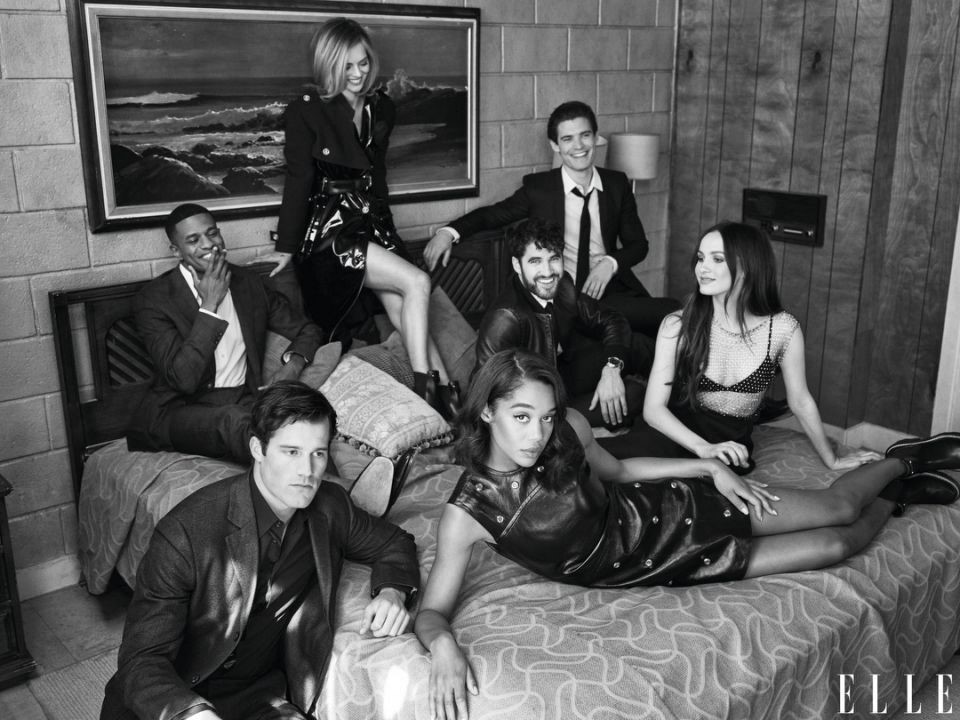"The fact that Ryan Murphy is great is now a given. Through "American Horror Story", and "Glee", he has brought inclusivity and a sense of belonging to the show biz, and has made a genuine influence on how his fans look, not only at television, but also at society at large. However, no matter how inclusive, or optimistic, his new show Hollywood aims to be- it's flawed. In fact, it's flawed in the very sense that it's too optimistic, or too jolly to address change.".

Hollywood, the new miniseries, covers the lives of talented, aspiring and a diverse set of budding actors, trying to make it in the lavish filmmaking sector defined by exclusivity in the post- Second World War era. It explores the journey of a young man Jack Castello, a War veteran, who is now on a fool's errand to become an actor- while his dissatisfied young wife with whom all the sparks of a new marriage have died out, complains about Jack slacking off. The show quickly jumps to a number of other similar- yet diverse characters such as Archie- a queer black writer who wishes to bring about a change with his coming-of-age writing and a fictional version of the real, legendary actor Rock Hudson. Archie and Rock meet through a sex ring operated from a gas station where many Hollywood stars come expecting amorous rendezvous, which would otherwise be spurned in that period due to social stigmas characterized by racism, and homophobia. Jack Castello finds himself a job at the gas station simply because he needs to pay the bills and the person who operates this society of vehement courtesans Ernie (Dylan McDermott) thinks of him as someone with bursting potential.
From there it's a pacey roller coaster ride of how all the characters find what they're looking for under the hot California sun and how everyone overcomes the mild difficulties which are heavily understated when compared to the biased milieu back then. The show does bring in some positive influences though, in characters like Henry Wilson, Raymond Ainsley and Ellen Kincaid played fantastically by Jim Parsons, Darren Criss, and Holland Taylor, respectively. Joe Mantello and Dylan McDermott play their roles with amazing depth too. The cast is lively from young, raw stars to experienced and sophisticated actors, and the acting is profound.
But sadly, you just can't say the same about the show. The storyline is poor, taking an array of superfluous and no-good twists, trying to include the whole cast whenever and wherever required. Okay, the sub-plots are well structured- but not well compartmentalized. The storyline may be taking good aim at deep, and entertaining cinematic encounters but unfortunately, it acquires a poor review when all these subplots hold no significance in the end and don't fit well together. Good things happen to the good, the bad and the ugly. Good things keep happening throughout the show, except when Jack's wife leaves him which was an insightful decision taken by Murphy. However, Jack gets attached to Claire Wood played by Samara Weaving, too soon- not to mention too weirdly, which squanders away the dramatic potential created in the plot by the use of divorce as a device in the series. The melodrama is surprisingly and annoyingly enough muted in parts of great scintillating depth, while it's amplified unnecessarily in scenes that are crafted specifically to cater to the audience in the gallery. The humour gets raunchy but the tragedy never reaches burning point. The optimism shines, but the negation of the tragic reality of this multi-billion dollar industry, makes it seem too distant and too unreal for the lack of a better word.
The last episode is the most cheesy of all. We won't spoil it for you, but we'll leave it to the finale to take a hit at your peace of mind. The exaggeration reaches new limits, clearly posing a fantasy world where only success is prevalent and inclusivity and acceptance seems to be the norm. We understand that what Murphy was essentially trying to do was pose an alternative and bright life in LA, quite different from the prevalent stigmas back then. However, instead of posing an alternative world like Quentin Tarantino, who's based his career upon unconventional movies which pose alternative outcomes arising from unpopular decisions, Murphy ends up making a mild parody of society. For example, a very pertinent approach would be displaying those stigmas in society, all the ugly truths in the Golden Age of Hollywood, and in the end, withdrawing from the realist approach and then posing an optimistic outlook, still significantly pulling off the alternative, jolly scenario. However, the whole show is the alternative jolly scenario; even though it tries to show exclusivity, it changes it's path too soon and too lamely.
Concluding, Ryan Murphy's show is not bad in the extreme. The casting and acting is amazing; the scenes are hilarious at times, and the show is entertaining, partly because of its flaws. However, it's just a loose string of episodes, missing the imperative base of a visual extravaganza, that is needed to keep the story compact. Even if homosexuality was prevalent, specifically at that time, nobody was very open about their LGBTQ involvement because of the social stigma. For example, if queer sexuality was so prevalent- and so commonly accepted in the show, why did all the men have to be so uptight about their sexuality in society that they would feel ashamed about it but still attend large, fancy Hollywood parties essentially for the same purpose? The show has it's good things, but it is flawed too, heavily. It would earn a 5.5-6/10 on my sheet.